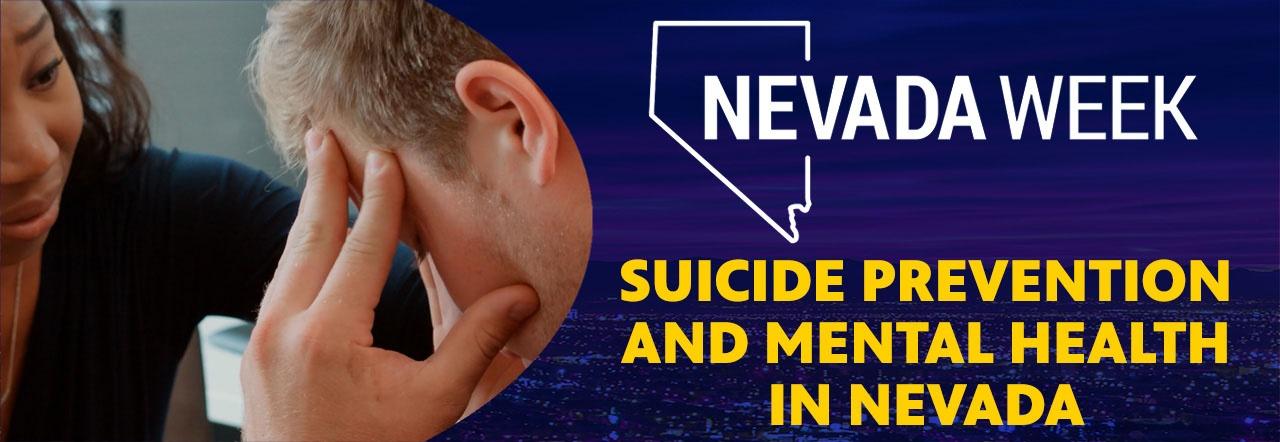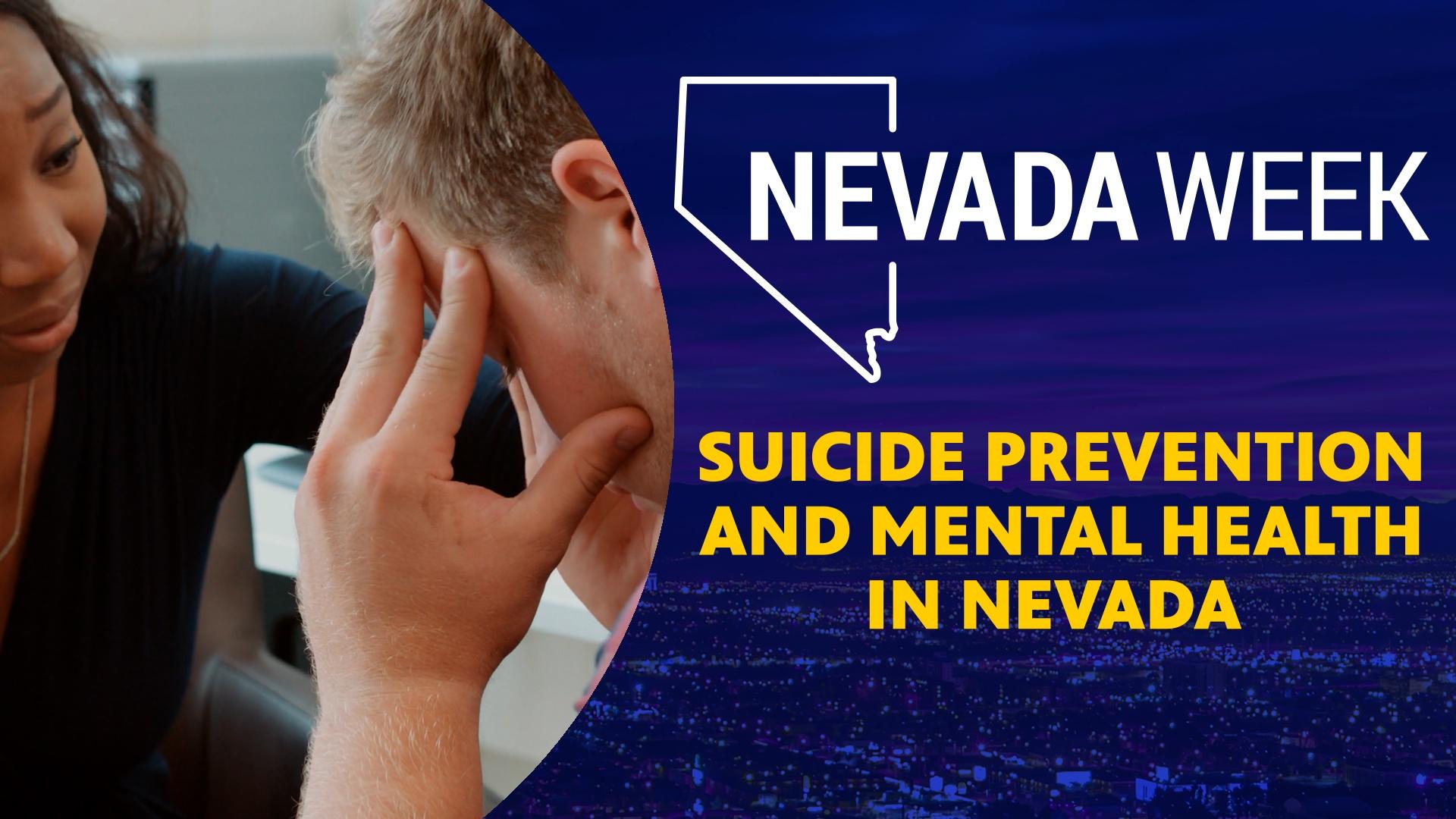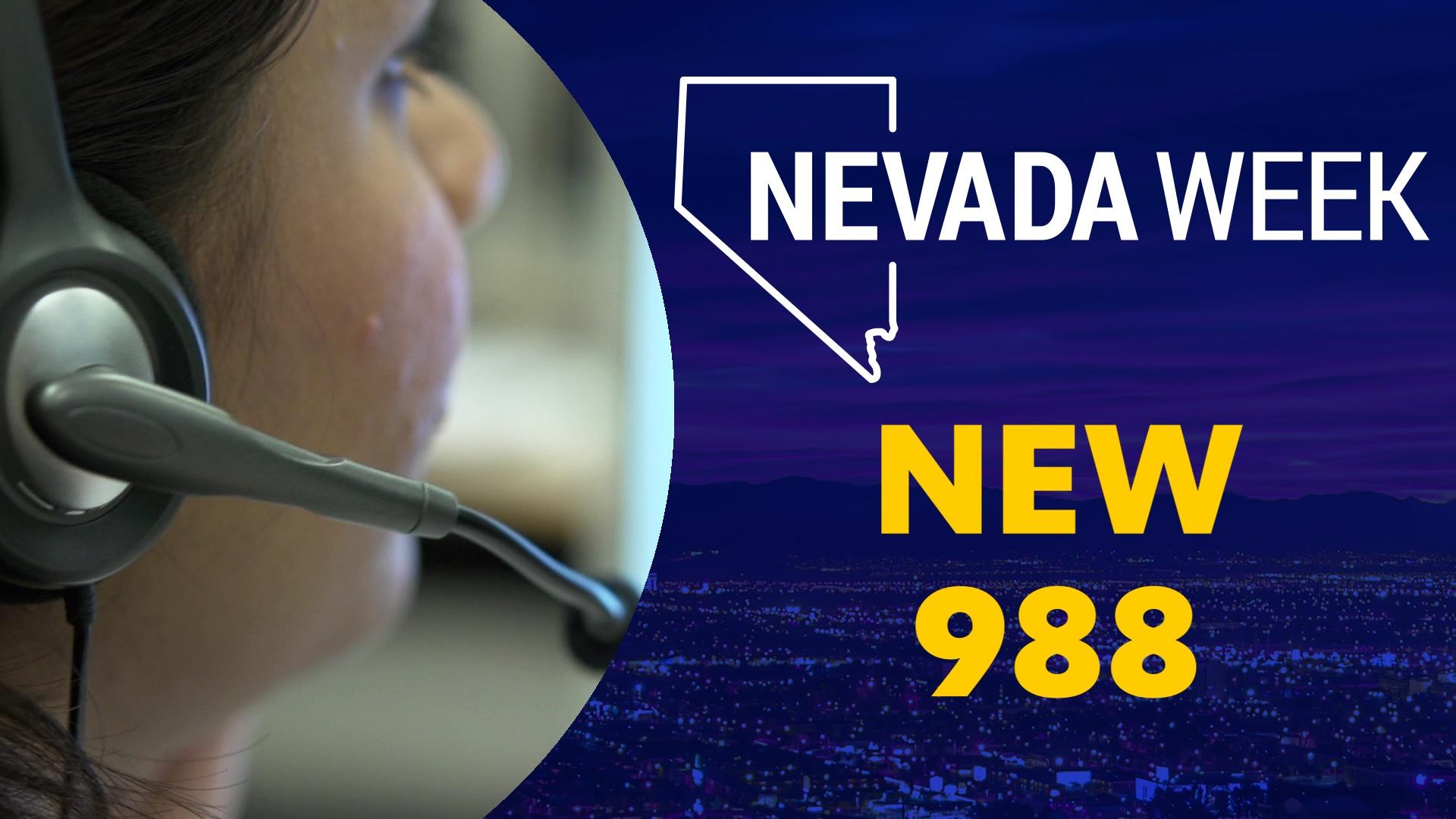Suicide Prevention and Mental Health in Nevada | Nevada Week


How the new 988 suicide hotline is working and more help for rural mental health.



SEASON 5: EPISODE 9 | Airdate: 9/9/2022
July 16 is when the National Suicide Prevention Lifeline transitioned to the much simpler and easier to remember - 988.
The Substance Abuse and Mental Health Services Administration sees 988 as “a first step towards a transformed crisis care system in America.”
Local experts have acknowledged the system is not perfect. Nevada Week spoke with Misty Vaughan Allen, suicide prevention coordinator with the Nevada Department of Health and Human Services, about the transition.
She said the biggest difference is the number is so much easier to remember so people in a crisis, who are overwhelmed, will have an easier time accessing help.
Vaughan Allen said Nevada has been working for a long time to be ready for the roll out of the new number. She said they have worked with a number of partners and stakeholders in the mental health sphere to iron out any concerns.
In Nevada, 988 is just a piece of efforts to improve mental health services, she said. The state has created a mental health crisis unit, which houses 988 but also has teams dedicated to creating mobile crisis response and crisis stabilization centers.
The mobile crisis response teams will be sent to people who need help beyond what they’re receiving from hotline counselors. The stabilization centers will also provide an extra level of care. Vaughan Allen said the centers are in the process of being built, but she didn’t have an exact timeline of when they would be open.
She said the ultimate goal is to make sure that when a person is seeking help that someone is there to pick up the call and connect them to the level of trauma-informed, peer-supported care they need. However, she admits it will take some time to get to that.
“These are going to be a long time in the making because these are huge paradigm shifts for our state,” she said.
Since the rollout of 988, there have been concerns. One mental health professional Nevada Week spoke with said he’s heard that some of the hotline workers are not giving the most appropriate care to callers because they’re not licensed counselors or therapists.
Vaughan Allen said while it was true that not all of the people who answer the lifeline are licensed they have all been highly trained to de-escalate a situation and respond to different crises from suicide ideation to child abuse and more.
Plus, she said that most, 80 percent, of people who call find help through the hotline. The rare few who might need more services will have a welfare check but that does not mean they’ll be involuntarily hospitalized. They may just be questioned about their safety and whether they have a plan to stay safe.
There has been a rise nationally in calls to the hotline since the launch of 988 in July. Vaughan Allen said Nevada’s numbers have come more in waves, but it’s been about a 15 to 20 percent increase overall.
Despite the increase, Vaughan Allen believes Nevada has the resources to handle the call volume. She said calls are being answered in just a few seconds, which shows that the state has the personnel needed to meet the needs.
“I think Nevada is one of the states that is leading the way. We are well prepared to respond,” she said.
And she believes the system will just continue to improve over time. While some people have expressed concerns about the new hotline, Vaughan Allen said it is still the best way for people in crisis or those concerned about loved ones to get help and support right away.
Nevada’s Department of Health and Human Services recently learned it would get a $3.8 million grant to launch a South Dakota pilot program here. The Virtual Crisis Care program will provide 11 law enforcement agencies in Nevada’s rural areas with tablets, which officers will use to connect someone experiencing a mental health crisis to a behavioral health professional.
The Helmsley Charitable Trust is behind the grant and one of its trustees, Walter Panzirer, talked to Nevada Week about the project.
Panzirer was a police officer in rural South Dakota for a decade. He said that officers come in contact with people going through extreme mental health crises on a daily basis. The new program gives out tablets that connect directly to a team of mental health professionals to help de-escalate the situation and help the officers make the right choice about what kind of help the person needs.
Panzirer said oftentimes police, who aren’t as highly trained in addressing mental health issues, make a decision to take a person to the hospital for care because they’re going to err on the side of public safety.
However, because rural areas are often so far from hospitals with services, it can take hours to transport someone, putting a strain on an already small police force.
The mental health teams are based in South Dakota, but the follow-up is always local, Panzirer said. With that local support, the project in South Dakota has seen a 50 percent drop in people needing repeat help.
Nevada officials reached out to the Helmsley Charitable Trust to bring the program here, Panzirer said. He said the program has received buy-in from across the state because mental health is not a rural versus urban issue or a Republican versus Democrat but something that impacts everyone.
Panzirer knows that the program won’t end mental health issues in rural areas, but he believes it is a start toward improving the system.
